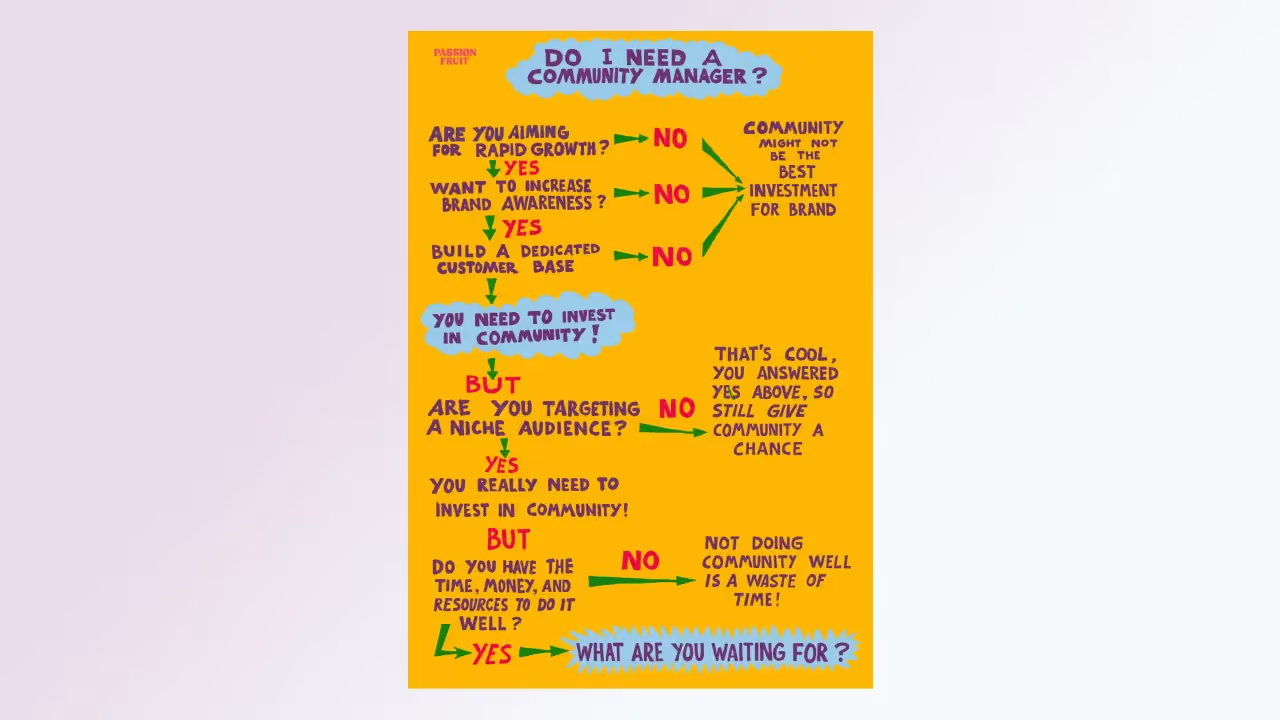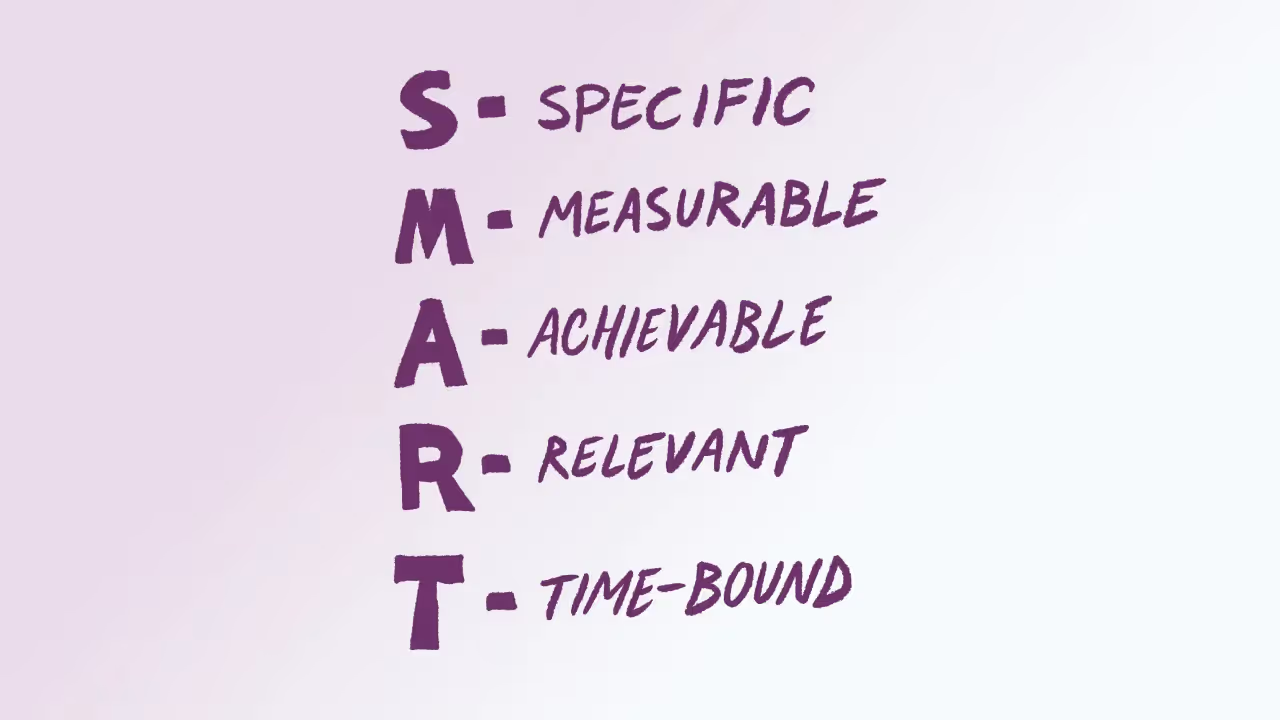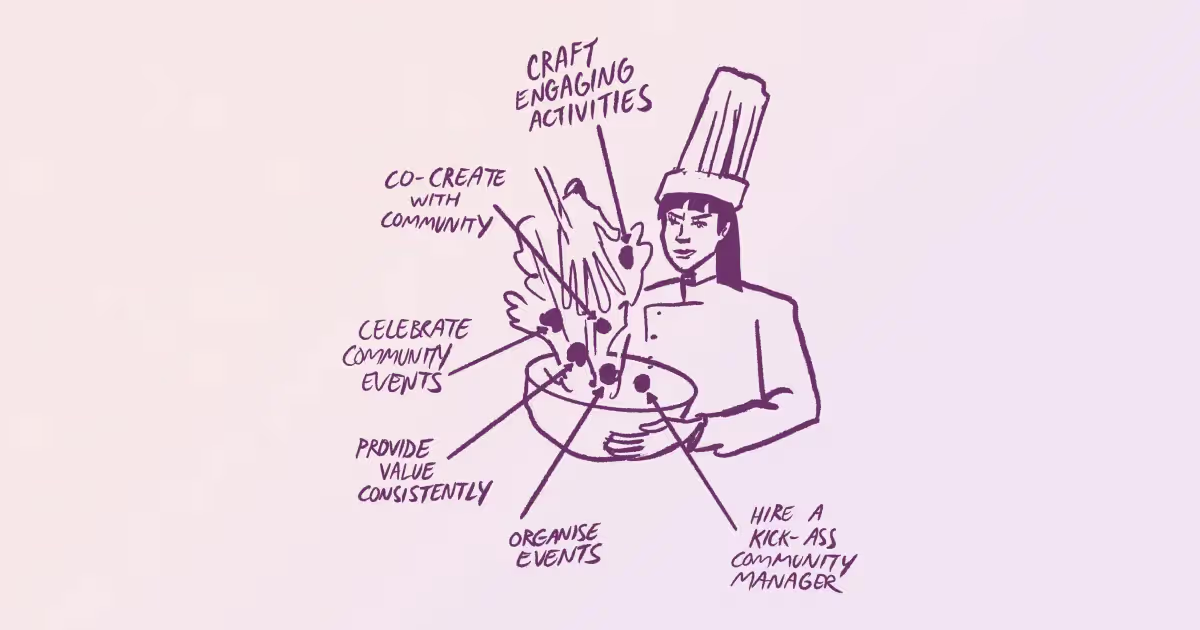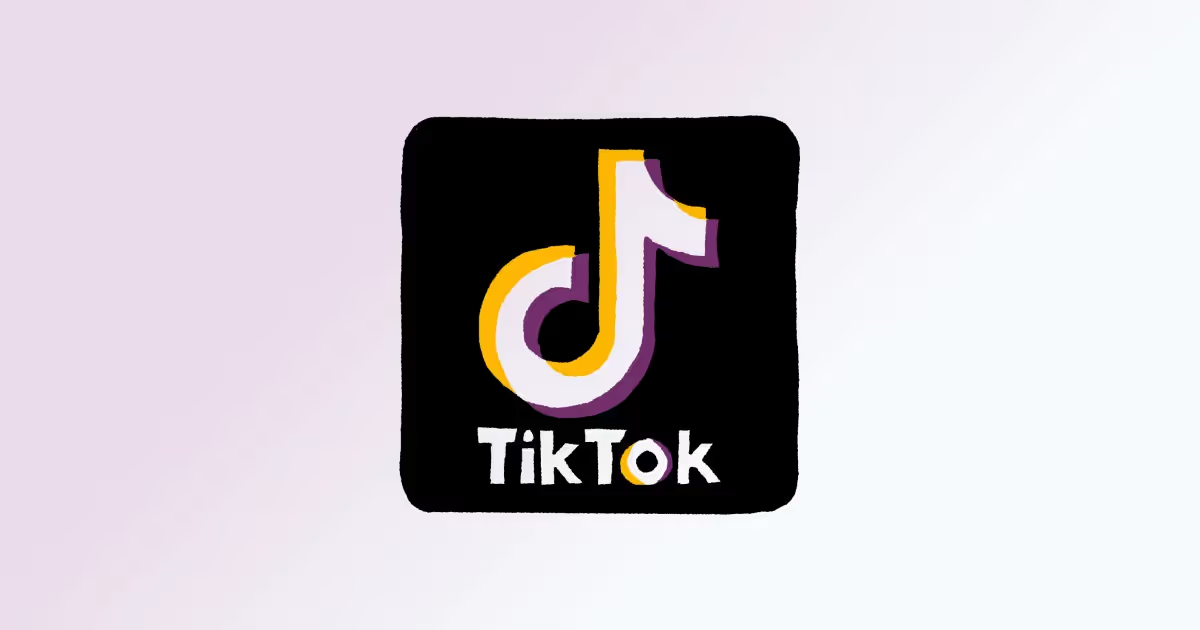Introduction
In the world of startups, there is a powerful force transforming small companies into remarkable success stories. That force is community. If you're not leveraging the power of community, you're leaving massive opportunities on the table.
As a community expert, I've witnessed firsthand how a kickass community can be the secret weapon that propels startups from obscurity to unprecedented levels of success.
Why Community is a Game-Changer for Startups and Founders
Now, you might be thinking, "what is the hype about community? Can't I just focus on my brilliant product or marketing campaigns?" Well, my friend, I'm here to tell you that while those things are crucial, building a thriving community is the secret ingredient that takes your startup from "just another business" to a force to be reckoned with.
First off, let's talk about valuable insights and feedback. You see, as brilliant as your ideas may be, it's the community that holds the real-world experience and diverse perspectives you need to refine and perfect your product or service. Their feedback will help you identify blind spots, uncover new opportunities, and steer your startup in the right direction.
Now, let's talk about the holy grail of growth: word-of-mouth marketing. Your community, when truly engaged and passionate about what you're building, becomes an army of advocates. They'll shout your name from the rooftops, spreading the word about your product far and wide. Forget expensive ad campaigns because nothing beats the power of genuine, authentic recommendations from those who believe in what you do. It’s also the reason why “64% of marketers agree that word of mouth marketing is the most effective form of marketing” as it results in 5x more sales.
Should You Focus on Building a Community?
Understanding the value of community
Should you put your precious time and energy into building a community? In short, yes! Let me break it down for you in terms even the toughest sceptic can't ignore.
First things first, let's talk about the sheer value a community brings to the table. We've already covered support, feedback, and word-of-mouth marketing, but there's so much more. A thriving community becomes your secret weapon for market research, trend spotting, and staying one step ahead of the competition. Your community members are your eyes and ears on the ground, giving you real-time insights into what your customers want and need. In fact, “86% of Fortune 500 companies report communities provide customer needs” and lead to increased satisfaction. If it’s good enough for them, it’s good enough for you.
Now, I can already hear some of you saying, "But, isn't building a community time-consuming? Shouldn't I focus on other growth strategies?" Trust me, I get it. Time is your most valuable asset. But let me tell you something, – investing in a community is a growth strategy in its own right. It's not binary; it's a smart move which will separate you from your competitors in ways you never imagined possible.
But who should manage this powerhouse of a community, you ask? Should you entrust it to a random intern or let it run wild? Absolutely not! Building and managing a community is an art, and it requires a skilled captain to steer it. Look for someone who understands your brand's values, knows how to nurture relationships, and can cultivate a vibrant, engaging space for your community to thrive. It's a critical role that should never be underestimated.
Determining if investing in a community is the right choice
First things first, let's assess your goals. Are you aiming for rapid growth, increased brand awareness, or building a dedicated customer base? If your answer is a resounding "yes!" to any of these, then investing in a community is an absolute game-changer.
Next up, consider your target market. If you are targeting a niche audience with specific interests and needs, a community becomes even more critical. By fostering a space where like-minded individuals can connect, share experiences, and seek advice, you position your startup as the go-to destination. In turn, this builds trust, credibility, and an army of advocates.
But let's not forget about the resources involved. Building and managing a community requires time, effort, and a commitment to engagement. It's not a task for the faint of heart or those seeking quick wins. You need to be willing to invest in community management, cultivate relationships, and consistently provide value to your members. If you're ready to roll up your sleeves and put in the work, the rewards will be worth it. However, if you're stretched too thin or lack the bandwidth to commit, it might be wise to wait until you can give it the attention it needs. After all, there's nothing worse than a half-engaged community that fizzles out before it even has a chance to thrive.

Who should manage the community?
Now that we've established the undeniable importance of building a community for your startup, let's address a crucial question: Who should take the reins and manage it?
First and foremost, the ideal community manager should be someone who innately understands your brand's values, vision, and voice. They should embody the essence of your startup and be able to authentically represent your mission to the community. Look for someone who aligns with your core beliefs and can genuinely connect with your audience on a deep level.
Additionally, your community manager should be a master relationship-builder. They need to be skilled in fostering meaningful connections, nurturing engagement, and creating an inclusive environment where everyone feels valued and heard. The best community managers are exceptional communicators. They possess the ability to listen actively, empathise with community members, and respond thoughtfully. They should be adept at providing valuable insights, offering guidance, and resolving conflicts that may arise. Effective communication skills are essential to maintaining a positive and engaging community atmosphere.

While these qualities are crucial, keep in mind that finding the perfect community manager is a combination of skills, experience, and cultural fit.
What Does a Successful Community Strategy Look Like?
So you now understand that communities are a necessity and you have your community manager, but what does a successful community strategy look like? Instead of theorising, we’ll analyse three exceptional examples of start-ups and scale-ups that have harnessed the true power of community to achieve remarkable growth.
- HubSpot: When it comes to inbound marketing and sales, HubSpot is an undisputed champion. Their HubSpot Community is a thriving hub where marketers, sales professionals, and entrepreneurs come together to share knowledge, ask questions, and collaborate. HubSpot Community is hosted on their own website giving them full control over the platform, allowing them to create a tailored experience that aligns with their brand values. What makes this community unique is there are lively discussions and events where members openly share their successes, challenges, and strategies. For example, marketers may exchange insights on effective email marketing techniques, sales professionals may discuss proven strategies for closing deals, and entrepreneurs may share stories of scaling their businesses. These conversations provide actionable takeaways that members can immediately apply to their own work. This community-driven approach has not only boosted user retention but has also played a significant role in driving HubSpot's revenue growth, which reached a staggering $1.3 billion in 2021.
- Buffer: If you're in the social media management space you may have heard of Buffer. This company truly understands the power of community. In 2017 they had 3,241 enthusiasts and marketers in their community on slack providing feedback and suggestions. They actively participated in discussions, shared valuable insights, and provided feedback and suggestions that shaped Buffer's product roadmap. Buffer embraced these new found insights and leveraged it to refine their social media management platform, ensuring it catered to the precise needs of their target audience. The result? $13.6M in revenue in 2021 and more than 160K paying Customers. Yes, you read that right! This exponential increase in user adoption and revenue is a testament to the power of community-driven growth. Buffer's commitment to fostering a thriving community not only fueled their success but also solidified their position as one of the most trusted and sought-after social media management platforms in the industry.
- Jasper.ai: Let's talk about the power of community in the realm of artificial intelligence and content writing. Jasper.ai has built a thriving community around their AI-powered content writing platform. Their community serves as a place for customer support and marketing professionals to exchange ideas, best practices, and success stories. By providing a space for knowledge sharing and fostering a supportive environment, Jasper.ai has not only created a loyal user base but has also facilitated continuous improvement of their AI technology. This community-driven approach has grown to over 75,000 members in their Facebook group and $40M in revenue in 2021, helping Jasper.ai establish themselves as leaders in the AI space.
Determining Which Platform to Launch On:
Choosing the right platform for your community is like throwing the perfect party. You need to know your audience and find the platform that matches who they are. Are they professionals? If so, set up camp in the vibrant world of Slack. Are they tech-savvy youngsters hungry for the latest trends? Well, Discord is their digital playground.
Just like finding the right party venue, aligning with your audience ensures they feel comfortable and ready to engage. It's like picking a party spot to match their style and vibe. You wouldn't host a formal gathering at a wild nightclub, right? So, choose a platform that resonates with their digital hangout preferences.

Setting goals for the community
Every great community starts with a powerful purpose. Why does it exist? Is it a hub for knowledge sharing, support or connection? Define your community's purpose to ensure all actions align with its core essence.
Identify Key Performance Indicators (KPIs): Pinpoint the KPIs which measure your community's success. Are you aiming for engagement? Track active members, discussions, or user-generated content. Want to build brand advocacy? Measure referral rates or satisfaction scores. KPIs act as your compass, guiding you towards desired outcomes.
Something that is under utilised, yet extremely valuable are SMART goals, for example, to boost engagement in your community. Your goal could be: Increase active participation in discussions by 25% within the next three months. It's specific, measurable, achievable, relevant, and time-bound. By using this framework you won’t just be hoping your community improves, you'll have an actual plan in place.

Aligning the Strategy with Business Goals
Building a community is not just about creating a passionate group of engaged individuals; it's about leveraging that community to drive your startup or scale-up towards its ultimate objectives. By aligning your community strategy with your business goals, you'll create a feedback loop which propels your growth and sets you apart from your competitors.
To align your community strategy, you must first define your business goals with crystal clarity. Ask yourself - what are the key objectives you want to achieve as a business? Is it to increase revenue, acquire new customers, drive product adoption, or enhance brand loyalty? Whatever your key objectives are, keep them at the forefront of your community strategy.
Now that you have a clear understanding of your business goals, it's time to identify the synergies between your community strategy and those goals. Explore how your community can directly contribute to the achievement of your objectives. For example, if your goal is to increase revenue, your community can serve as an engine for customer referrals and testimonials.

How do you create a thriving community?
Design Activities That Resonate with the Community
Crafting engaging activities that keep your community buzzing with excitement is the key to success. Begin by understanding your community's interests, unravelling their burning passions, and addressing their challenges. Embrace variety by offering a diverse range of activities which cater to different peoples interests.

Co-create with your community – involve them in the decision-making process and empower them to ensure they return for future events. When you encourage active participation, you’ll end up fostering a culture where everyone's voice feels valued and before you realise it, contributing will become effortless.
A big mistake that I see some founders make in their communities is they forget to celebrate community achievements which will only discourage your hardcore fans and will turn advocacy into apathy. Avoid this mistake at all costs! But how? Start by making celebrations a priority and by highlighting the accomplishments of your community members, whether that’s through an award, member of the week, or exclusive perks; it will make the individual feel valued and inspire others in the community to try and attain that status as well.
Provide Value Regularly
To dominate the community game, you have to deliver irresistible value. How? Dive deep into your community's mindset and understand their needs, desires, and pain points. Once you’ve done that, you’re ready to craft an epic editorial calendar which serves up a diverse mix of content — articles, videos, podcasts, and interactive sessions — to keep them interested and coming back for more.
You’re probably thinking, ‘that’s great, but what’s the secret sauce’? Consistency. Doing it for a few weeks or months isn’t enough. You need to be delivering value everyday, even if it’s as simple as replying to a comment.
Like I said before, if you really want to take things to the next level, celebrate your communities successes and showcase their achievements to make them feel like superstars (everybody loves recognition). Finally don't forget to host AMAs (Ask Me Anything) with the founder & industry leaders as well as influencers. These Q&A sessions will spark conversations and provide valuable insights which keep your community interested in the long run.
Organise events
A community without events is like fish and chips without ketchup (or curry sauce if you’re a northerner), it just doesn’t make sense. They are the secret weapon to skyrocket your community's engagement and even re-engage people who may have previously been less interested.

Whether it's an epic online gathering or a face-to-face meetup, events create experiences that leave a lasting impact. Here's how you can create an event which will leave your community in awe:
Clearly define the purpose and make sure to align it with your community's KPIs and ensure it drives value and excitement.
Once you understand why you’re creating the event, you should add incentive for people to attend. Now whilst this is optional, understand that people could be spending their time watching Netflix or arguing with their significant other, so why should they spend time with you? It doesn’t have to be big or even have monetary value, it could be as simple as a special role or recognition in the community which provides special access to beta or sneak peeks.
The biggest challenge and the most important step is marketing the event. Create a buzz by promoting it early and start teasing the event. Use social media, send email campaigns, and collaborate with influencers to get as much visibility as possible.

Final Thoughts
The importance of community for startups and founders is understated and under utilised. It's your secret weapon and ultimately your ticket to success.
Community is not just about numbers and metrics, it's about real connections with real people. It's about having a tribe of passionate supporters, collaborators, and die-hard fans who share the passion of your product with everyone they know.
But here's the deal, building a community isn’t a walk in the park. It takes dedication, genuine care, and a commitment to deliver value on a consistent basis. It's about going beyond transactional exchanges and nurturing authentic relationships.
So, founders, if you’ve read to the end I need you to do me one last favour: embrace the power of community with open arms. Remember, success is not a solo journey — it's a collective effort.







